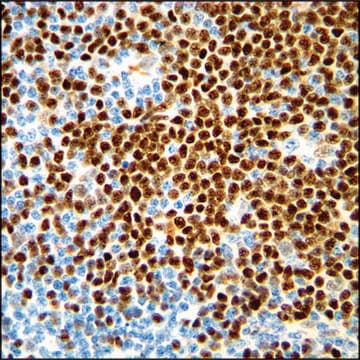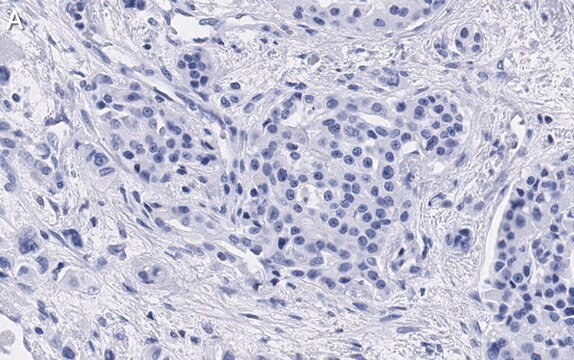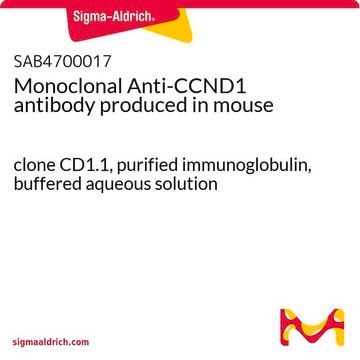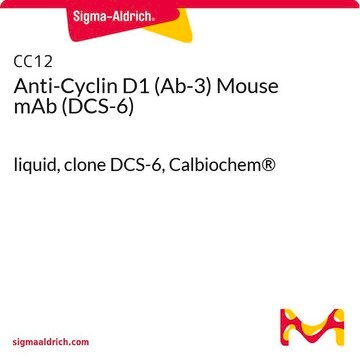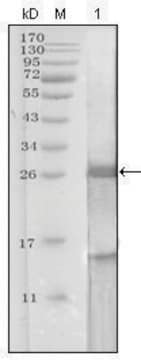C7464
Monoclonal Anti-Cyclin D1 antibody produced in mouse
clone DCS-6, ascites fluid
About This Item
Productos recomendados
biological source
mouse
Quality Level
conjugate
unconjugated
antibody form
ascites fluid
antibody product type
primary antibodies
clone
DCS-6, monoclonal
mol wt
antigen 36 kDa (several lower and higher molecular weight bands)
contains
15 mM sodium azide
species reactivity
rat, mouse, human, monkey
technique(s)
immunocytochemistry: suitable
immunohistochemistry (formalin-fixed, paraffin-embedded sections): suitable
immunohistochemistry (frozen sections): suitable
immunoprecipitation (IP): suitable
microarray: suitable
western blot: 1:200 using a human tumor cell line extract
isotype
IgG2a
UniProt accession no.
shipped in
dry ice
storage temp.
−20°C
target post-translational modification
unmodified
Gene Information
human ... CCND1(595)
mouse ... Ccnd1(12443)
rat ... Ccnd1(58919)
Categorías relacionadas
General description
Specificity
Immunogen
Application
- immunoblotting
- immunofluorescence
- immunocytochemistry
- immunoprecipitation
- immunohistochemistry
- antibody-mediated knock-out experiments
Biochem/physiol Actions
Physical form
Storage and Stability
Disclaimer
¿No encuentra el producto adecuado?
Pruebe nuestro Herramienta de selección de productos.
Optional
Storage Class
10 - Combustible liquids
wgk_germany
WGK 3
flash_point_f
Not applicable
flash_point_c
Not applicable
Elija entre una de las versiones más recientes:
Certificados de análisis (COA)
¿No ve la versión correcta?
Si necesita una versión concreta, puede buscar un certificado específico por el número de lote.
¿Ya tiene este producto?
Encuentre la documentación para los productos que ha comprado recientemente en la Biblioteca de documentos.
Nuestro equipo de científicos tiene experiencia en todas las áreas de investigación: Ciencias de la vida, Ciencia de los materiales, Síntesis química, Cromatografía, Analítica y muchas otras.
Póngase en contacto con el Servicio técnico
